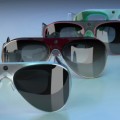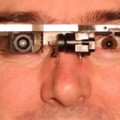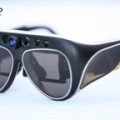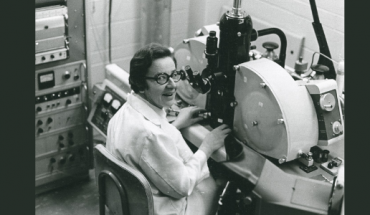It’s one of the most unnerving tech experiences any audience could ever have: we’re watching a noted lecturer; he’s wearing strange high-tech glasses. They’re connected to a huge video screen, on which the audience sees what he sees: an image of the audience looking at the lecturer, looking at the audience….
Canadian lecturer, author, inventor, entrepreneur and university professor Steve Mann has often worn a mobile webcam; he’s been doing so in one shape or form for some twenty years. Everything he saw everyone else could see, too, including text messages that showed up on his head-worn display – because his wearable was hooked up to the Web.
 Now, augmented reality (AR) is a spectacle unto itself, and wearable computing gadgets are being called ‘the next big thing’.
Now, augmented reality (AR) is a spectacle unto itself, and wearable computing gadgets are being called ‘the next big thing’.
There are many ways to enhance reality; some take longer to work than others.
Often called ‘the father of ‘wearable computing’, Dr. Steve Mann has been developing augmented reality systems since the 1980s, including Digital EyeGlass, the EyeTap Borg camera, Funtains and now, Space Glasses.
Augmented (or ‘augmediated’) reality systems take real-world human sensory inputs and enhance – or augment – them with digital data, usually obtained from the Internet. AR is seen as a technological way to enhance life with additional information that is relevant, practical or entertaining – and in some cases, life sustaining.

Canadian technology developer Steve Mann has joined a leading global augmented reality company, called Infinity AR. The company’s CEO Enon Landenberg says, “If you look up the word ‘inspiration’ in the dictionary, you will find Steve Mann’s picture.” Looking at Mann wearing one of his inventions is an experience in itself.
New products like Google Glass and Lumis’ glasses can superimpose virtual images, video, text and sound on top of what is really there.
Working with the Computer Engineering Research Group and Department of Electrical and Computer Engineering at the University of Toronto, Professor Mann has developed many augmented reality tools on his own; now, a company with a somewhat similar name has hired him as chief scientist and product developer.
Infinity Augmented Reality, Inc. is a leading global product and platform developer, working not only with digital eyewear, but also smartphones, tablets, smart TVs and connected cars.
Mann brings his decades of experience with wearable media and the augmented reality revolution to the table, and the company is set to release its first end-user products this year. The product offerings include SpaceGlasses, new augmented reality glasses said to have 15 times the screen viewing area of Google Glass, meaning there’s lots of room to display and change visual overlays as the wearer changes his or her visual perspective.
What’s more, the eyewear incorporates audio speakers that add virtual sounds to the user experience, as well as microphones that capture and interpret the user’s spoken commands, using speech recognition technology to respond to requests for desired information and actions.

A prototype of the new augmented reality platform, called SpaceGlasses, on which virtual images, video, text and sound can be superimposed on top of what is really there. Canadian technology developer Steve Mann has joined a leading global augmented reality company which will release the product this year.
Mann is head scientist behind the SpaceGlasses, and Infinity AR is an investor partner in the soon-to-be-released new product, one that’s actually been in development for decades.
-30-
submitted by Lee Rickwood



